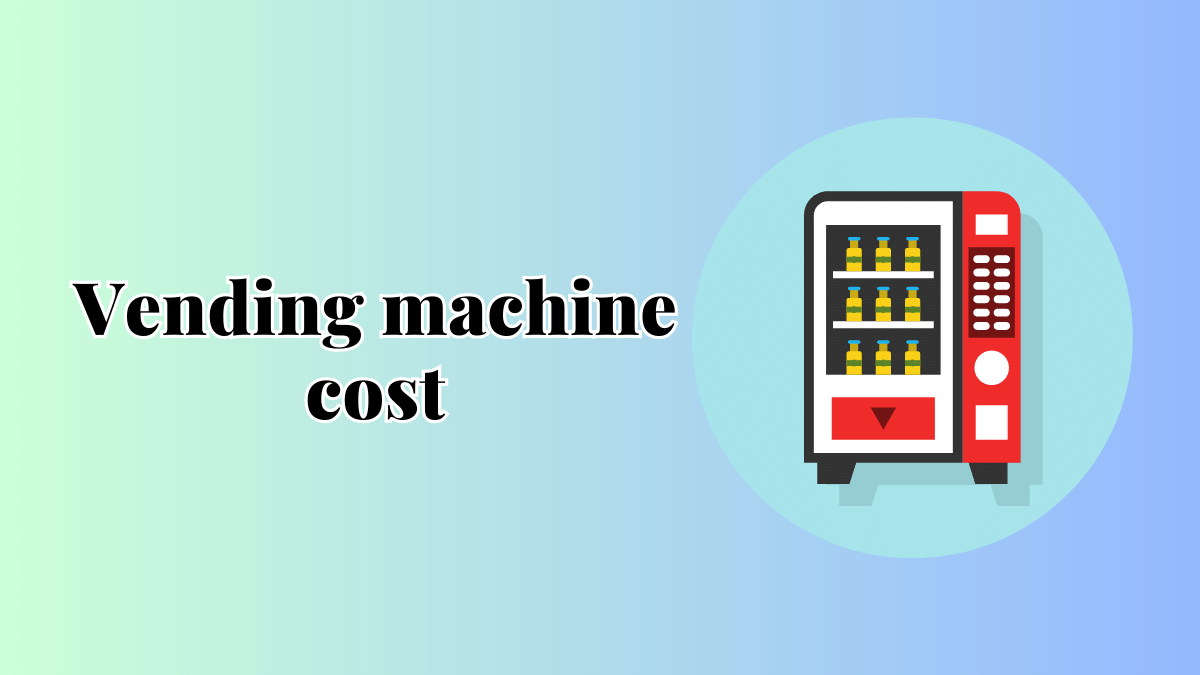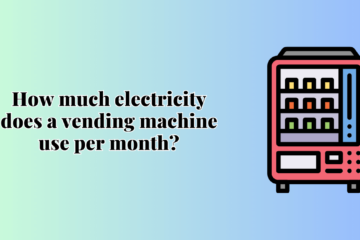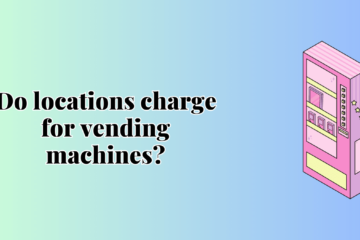Vending machines have become an integral part of modern convenience, providing quick and easy access to various products such as snacks, beverages, and even electronics. The convenience they offer has made them a popular choice for entrepreneurs and businesses seeking passive income opportunities. However, before diving into the vending machine business, it’s crucial to understand the cost factors associated with owning and operating these machines.
The Benefits of Vending Machines
Before delving into the costs, let’s first explore the advantages of having vending machines. Vending machines offer a convenient shopping experience for consumers, allowing them to make purchases 24/7 without the need for human assistance. For businesses, vending machines can generate additional revenue streams and enhance customer satisfaction, especially in high-traffic areas.
Factors Affecting Vending Machine Cost
The cost of a vending machine can vary significantly based on several factors:
1. Machine Type and Size
Vending machines come in various types and sizes, ranging from compact machines for small spaces to large, fully automated models with advanced features. The size and type of machine you choose will influence the overall cost.
2. Features and Technology
Modern vending machines boast advanced technologies such as cashless payment systems, touch-screen interfaces, and remote monitoring. While these features can enhance the user experience and increase sales, they can also add to the initial cost.
3. Location and Placement
The location of your vending machine plays a vital role in determining its profitability. High-traffic areas, such as shopping malls, airports, and office complexes, often come with higher rental costs but can lead to better sales.
4. Product Inventory
Stocking your vending machine with the right products is essential for attracting customers. The cost of inventory will depend on the variety and quantity of items you choose to offer.
5. Maintenance and Repairs
Regular maintenance and occasional repairs are necessary to keep your vending machine running smoothly. Budgeting for these expenses is essential to ensure the longevity of your investment.
Buying vs. Renting Vending Machines
When starting a vending machine business, you have the option to either buy or rent machines. Buying offers long-term ownership and potentially higher profits, but it requires a significant upfront investment. On the other hand, renting provides a more affordable entry point, making it ideal for those testing the waters before committing fully.
Cost Breakdown of Vending Machines
Let’s break down the costs associated with owning a vending machine:
1. Initial Investment
The initial investment includes the cost of the vending machine itself, which can range from a few hundred to several thousand dollars, depending on the type and features.
2. Operational Costs
Operational costs include restocking inventory, servicing the machines, and any transaction fees associated with cashless payment systems.
3. Return on Investment (ROI)
Calculating the ROI is crucial to understanding how long it will take to recoup your initial investment and start making a profit.
Financing Options for Vending Machines
For those unable to afford the upfront cost of purchasing a vending machine, several financing options can make the investment more accessible. Banks, equipment financing companies, or even the vending machine manufacturer may offer financing plans.
Tips to Reduce Vending Machine Costs
Consider the following tips to minimize the overall cost of owning and operating vending machines:
1. Choose Efficient Machines
Invest in energy-efficient machines to reduce utility costs and boost your profits.
2. Optimize Product Selection
Analyze consumer preferences in the location where your machine will be placed and tailor your product selection accordingly.
3. Negotiate with Suppliers
Build good relationships with suppliers to get better deals on products and reduce inventory costs.
4. Maintenance and Upkeep
Regularly maintain your machines to prevent breakdowns and costly repairs in the future.
The Future of Vending Machines
As technology continues to advance, vending machines are likely to become even more sophisticated and versatile. We can expect to see further integration of cashless payment options, interactive displays, and increased personalization to meet consumer demands effectively.
Conclusion
Owning a vending machine business can be a lucrative venture, but it requires careful planning and consideration of the associated costs. By choosing the right machine, location, and products, and implementing cost-saving strategies, entrepreneurs can maximize their profits and stay ahead in the competitive vending industry.




